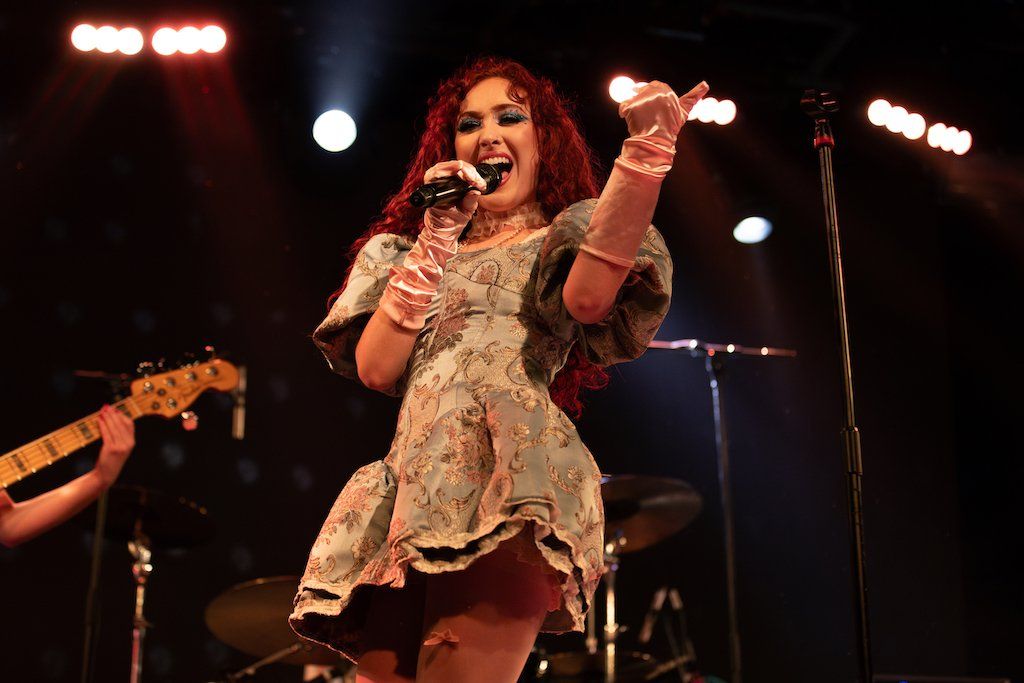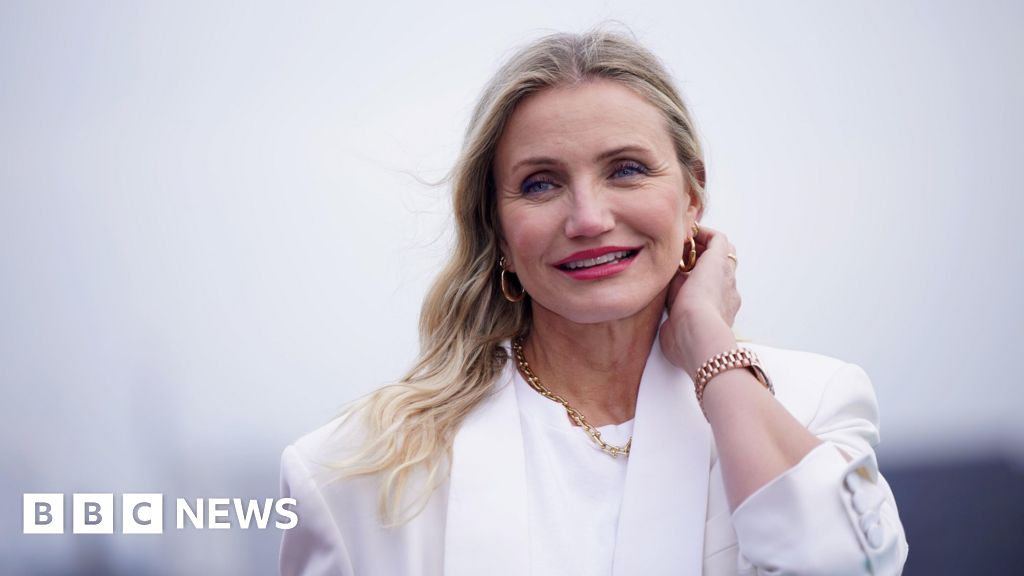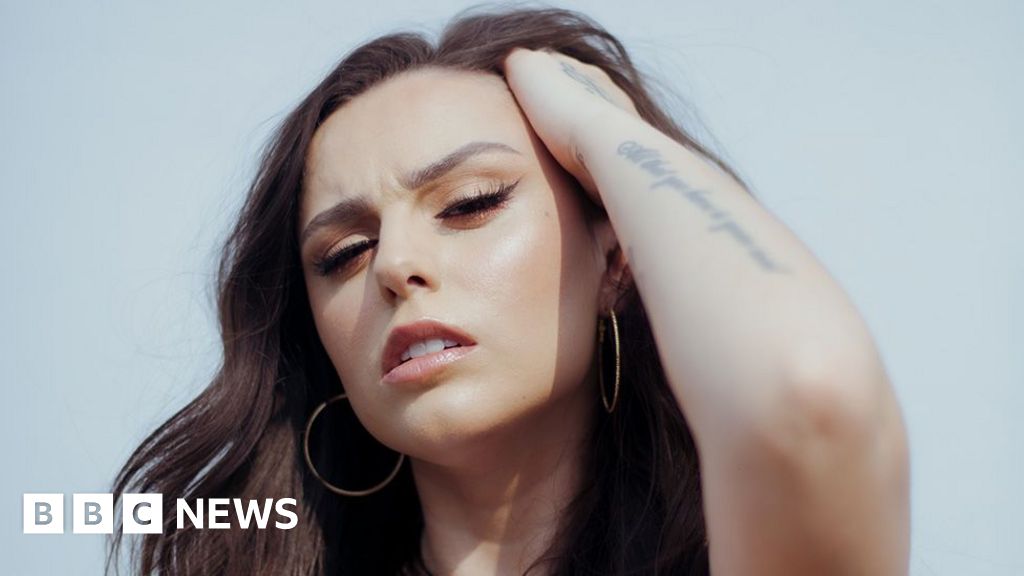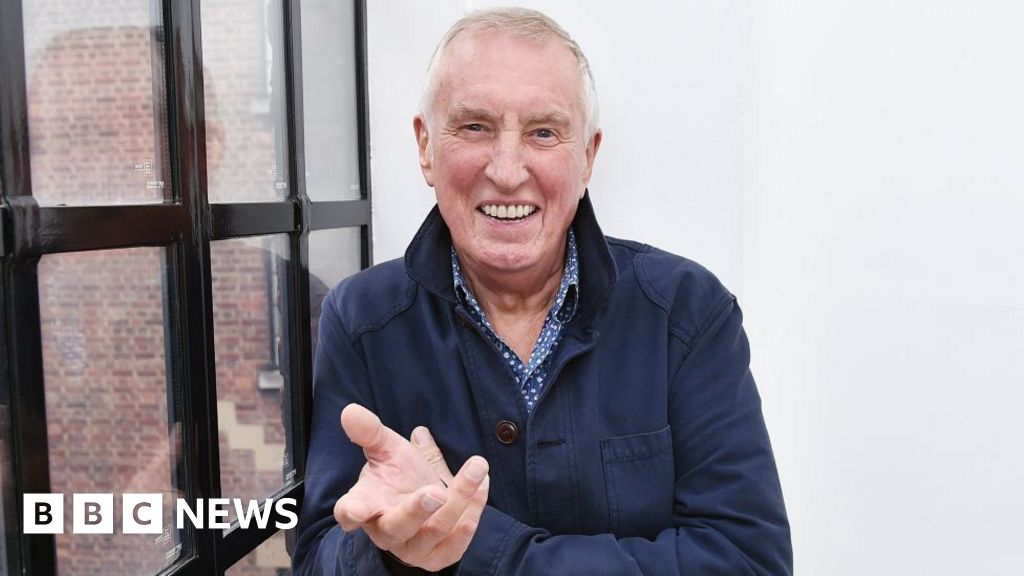ARTICLE AD BOX
 Image source, Getty Images
Image source, Getty Images
The US singer has just come off tour with Olivia Rodrigo, with whom she shares co-writer and producer Daniel Nigro
By Mark Savage
Music correspondent, BBC News
Ring the alarm: Pop music is getting its sense of fun back, and it's all thanks to Chappell Roan.
Her uproarious debut album, The Rise And Fall Of A Midwest Princess, came out last September, telling the story of a closeted, small-town girl finding her way in the world.
Full of outrageous lyrical twists and scorching-hot melodies, it's also one of the horniest records in recent memory.
The 26-year-old has sex in the passenger seat of a car, streaks down the streets of New York and makes out with her best friend, reasoning: "We could go to hell, but we'll probably be fine."
That line is more autobiographical than it seems. Roan was brought up in the conservative city of Willard, Missouri, where she attended church three times a week and was taught that being gay was a sin.
Moving to LA after signing a record deal opened her eyes. Immediately after visiting her first gay club, she wrote Pink Pony Club - a campy, liberated disco anthem that's become her calling card.
But the singer isn't as promiscuous as her lyrics suggest. Chappell is actually the alter-ego of the much quieter and self-effacing Kayleigh Amstuzt, whose fragile heart is exposed on lachrymose ballads like Kaleidoscope and California.
She describes Chappell as a "larger-than-life, drag queen version of myself", who allows her to be rebellious and risqué.
"I couldn't be Chappell all the time," she admits. "I'd be absolutely exhausted."
Image source, Ryan Clemens
Image caption,The singer says she often spends over an hour putting on her show clothes and drag make-up
If you haven't heard of her yet, don't worry. Her album only sold 3,000 copies in its first week, but word is starting to spread.
After picking up several "album of the year" citations in late 2023, Roan booked appearances on Stephen Colbert's US chat show and NPR's influential Tiny Desk Concert (where she wore three wigs, held together with sticky tape and cigarette butts).
In her review of the album, Pitchfork's Olivia Horn described it as an "uproarious pop project stitched with stories about discovering love, sex, and oneself in a new place... buoyed by youthful vim and steely indifference to the bounds of good taste".
In a four-star review, NME's Hannah Mylrea praised the "funny, irresistible songwriting", but added the "sharp pop moments shine brighter than some of the weaker ballads that pad out the lengthy tracklist".
Currently on tour with Olivia Rodrigo, Roan's just released a new single, Good Luck, Babe - and caught up with BBC News shortly before taking the stage in Pennsylvania.
You grew up in America's conservative Bible belt. At what point did you go,"I'm too big for this town, I'm off to LA!"
It was never that I was too big for the town, I just didn't feel like myself there. I couldn't express myself the way I wanted to, or talk how I wanted to. I always felt like I was too much.
When I go back nowadays it's more comfortable. I realised it's just a town and people don't care as much as I thought they did.
When did you start writing music?
When I was a teenager in high school, so 14 or 15. I'd go to summer art camp and put cover songs on YouTube, and that's really how I got discovered.
If I handed you a CD of those early songs now, would you play it or destroy it?
Play it! I appreciate that version of myself. She was just so desperate in wanting to be understood, and she was not afraid to cry and wallow and be sad, which is something I've become avoidant of as I've grown older.
She was also un-medicated and very mentally ill, as a lot of us were, but I love that she wasn't afraid to be fully emotional.
It's interesting that you talk about her as though she was a different person.
I feel like I moulted out of an old skin and I'm a new woman! I'm not that teenage girl any more, but she's the reason I am where I am now.
Image source, Getty Images
Image caption,After playing three headline tours in the last year, the star has seen her audience grow organically, rather than via a TiKTok algorithm
You signed to Atlantic Records and moved to LA when you were 17. How did that affect you?
It was very disorienting and shocking. I would cry in my car if people honked at me.
It wasn't really until I was there four, five years that I really found myself in the queer community - all of the drag shows and the dancing and the clubs and the fun art stuff.
That directly inspired Pink Pony Club... Tell me about the night that led to that song.
I know how cliché this sounds, but I walked into that club in West Hollywood and it was like heaven. It was amazing to see all these people who were happy and confident in their bodies, and wearing these risqué things.
And the Go-Go dancers! I was enthralled. I couldn't stop watching them. I was like, "I have to do that".
I didn't become a Go-Go dancer, but I wrote a song about it!
When the song didn't sell, you were dropped by your label. Did you think, "That's it, I have to retrain as a dentist"?
I did think about that! I ran out of money in LA, so I moved back in with my parents and worked at a drive-thru donut shop. I was like, "Oh my God, this might actually be my life".
But I saved up some money, moved back to LA and gave myself a year.
When did you realise it'd be OK?
When I released Naked In Manhattan. It started doing well on TikTok, then I played my first headline show and everything clicked.
I was like, "Oh, this is more than just people listening on Spotify. This is like a party in real life".
Image source, Ryan Clemens
Image caption,Songs like Casual and Kaleidoscope address the thorny dynamics of Gen Z relationships
Tell me about the Chappell character. Why did you decide to be her, instead of Kayleigh Amstutz?
I just didn't think me as Kayleigh was exciting enough. So I invented this more interesting version of me, and I'm so glad I did.
How much of Kayleigh is there hiding inside Chappell?
I'm about 30% Kayleigh on the stage. But if I'm doing a song like Kaleidoscope, then I'm fully Kayleigh.
Does the persona allow you to express things you'd be too shy for in real life? Like, I noticed you wrote about dating girls before you had a girlfriend.
Exactly. It's something I wanted so bad, but I didn't know how to make it real. The songs ended up being a manifestation.
Image source, Mary Mathis
Image caption,Although she majors in pop music, there's a country twang to Roan's vocals that can be traced back to her Midwestern roots
On Coffee, you refuse to meet your ex-boyfriend for a drink, saying coffee would be safer. That's a brilliant little observation.
It came from real life! I was going to meet my ex in New York and, the day before, I wrote that song as a warning to myself: If we drink anything other than coffee, I know where it's going to end up.
And, surprise, we didn't get coffee and it ended up poorly. I had the intention, I just didn't follow through!
You've described Good Luck, Babe as the start of your next era. Does that mean a second album is already on the way?
I'm sure I'll come to an album but, for now, I'm just writing songs that I love and putting them out.
What made this song the right one to kick off phase two?
I love that it's a pop song with a sad element to it.
It's very common in queer relationships, when someone is still coming to terms with their queerness, [that] they'll kiss 100 boys to "stop the feeling", as the song says. But you can't escape fate.
The song's a little bit about myself and a little bit for the girls of my past, who'd tell me, "I don't think I'm queer".
And it's like, "Sure, OK. Your time will come."
Good Luck, Babe is out now. Chappell Roan tours the UK in September.

 9 months ago
36
9 months ago
36








 English (US) ·
English (US) ·